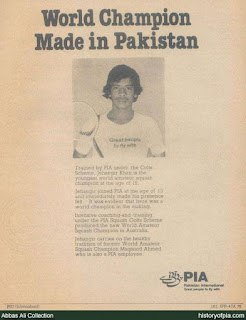DANCING WITH DISRUPTION - 18th MAP CONVENTION ADDRESSES THE ADVANCING TSUNAMI OF CHANGE
FOCUSES ON RE-INVENTING THE MODERN ORGANIZATION; OCTARA & MAP IN
HIGH-ENERGY TANGO
Report filed by Adil Ahmad
(Correspondent, OCTARA & TCS CONNECT Corporate Magazines)
The grand ballroom was brimful with corporate warriors both male and female. These were all high value human assets with the potential of becoming effective first responders as and when the promised Tsunami of accelerating change hit our shores.
The grand ballroom was brimful with corporate warriors both male and female. These were all high value human assets with the potential of becoming effective first responders as and when the promised Tsunami of accelerating change hit our shores.
This was not a strategy session. Those would come later. On the 28th of
September 2016 the Movenpick Hotel was the setting for a real-time face-to-face
with knowing the ‘enemy’, no holds barred. There was going to be no
sugarcoating the enormity of the situation in hand.
Battle hardened ‘gurus’, with hindsight and foresight as their weapons of
choice, had been gathered from the four corners of the globe by Octara and its
dynamic duo Muhammad Arif and Jamil Janjua for this annual MAP Conclave, the
18th such in an unbroken series.
They would map the terrain and render advice on how to deal with disruption for
the younger sets of corporate warriors yet to be bloodied in battle.
Mental and physical agility were clearly at a premium, with the ability to see
the ball early and go with the flow, much as in Judo, flagged as the top
priority. When you have a strong wind you don’t build barriers, you build
windmills, said one guru.
Formidable Line-up
From the United States of America we had the crème de la crème of the Ivy League represented by Kate Sweetman and Shane Cragun, co-authors of the book ‘Reinvention’ that lays out the latest thinking on how to cope, and indeed profit from the phenomenon of accelerated change.
From the United States of America we had the crème de la crème of the Ivy League represented by Kate Sweetman and Shane Cragun, co-authors of the book ‘Reinvention’ that lays out the latest thinking on how to cope, and indeed profit from the phenomenon of accelerated change.
From Malaysia came Raj Kumar, the champion of Blue Oceans and the search for
competitive advantage.
Seasoned global campaigners included Wajahat Husain (President
& CEO, UBL), Dr. Daniel Ritz (President & CEO, PTCL), Dr. Zeelaf Munir (MD&
CEO, EBM), Dr. Asim
Jamal (Country Chair & MD, sanofi-aventis Pakistan), Adnan Shahid (Chief
Commercial Officer, PTCL), Jehan Ara (President, P@SHA & The Nest I/O), Humayun Bashir (Member
Executive Committee MAP) , Sarfaraz A. Rehman (Member Executive Committee MAP), Shahzeb Mehmood (CEO &
GM, RB West Asia), Saqib Shirazi (CEO, Atlas Honda), Furqan Qureshi (Coach & Consultant), Khurram Khani (Group Head
Information Technology, IT Division, UBL ), and the host and president of MAP Syed Masood Hashmi, ably
and amply assisted by the MAP secretary-general Salah Uddin.
In the audience, at the head table, sat Khalid Awan, Chairman of the logistics
behemoth TCS, and the visionary engineer-pioneer who has built this vast
enterprise from scratch and in the process laid the foundations of Pakistan's
logistics sector. If anybody in the audience knew what it was all about to
dance with disruption then it was him, having done it for three decades and
more, harnessing the energy of sometimes stormy winds of change, building
windmills instead of barriers with quantum growth the outcome by the grace of Allah.
Consistently Ahead of the Curve
United
Bank Limited was the Platinum Sponsor and chief enabler of this critical
Convention, and its CEO Syed Wajahat Husain delivered an impactful opening
statement in his keynote address. The age of disruption is upon us, he said,
and the VUCA environment is a fact of life. Volatility, Uncertainty, Complexity
and Ambiguity had come to define the challenge of doing business in the
contemporary world, and the exponential age would see technology disrupt most
traditional industries in the next decade or so. “UBL is acutely aware of the
need for effective management and constant reinvention, and takes pride in
being ahead of the curve ever since its inception in 1959, emerging as a
pioneer in branchless banking with over 40,000 agents across the country
enhancing the outreach of UBL’s 1350 branches.” Those who have danced successfully
with disruption have solid business foundations, said Syed Wajahat Husain. “UBL
has earned its reputation as a progressive and innovative bank.”
Shane Cragun
The three Keynote Speakers
occupied center stage during the course of the day, with Shane Cragun launching
a blistering attack on the status quo first thing in the morning, drawing
heavily from the book ‘Reinvention’ which he has co-authored along with Kate
Sweetman. The Ballroom bristling with corporate warriors was rendered shocked
and awed by Shane’s relentless rendering of the bad news that would come riding
on the back of accelerated change if we failed to bob and weave with greater
agility and align for the massive disruptions that the coming times were sure
to bring with quantum gains in technology and Nature’s flexing of muscle
through global warming and climate change.
There was no option anymore. Each
one of us would have to leave our comfort zones and assume action stations at
the battlefront, but instead of trying to stonewall the advancing Tsunami of
change and being utterly swamped in the process; adopt a strategy of going with
the flow and riding the crest yielding quantum growth. Judo was Shane’s weapon
of choice; developing the ability to dance in step with a force much larger and
greater than oneself and looking for opportunity to maneuver and gain advantage,
rather than taking it head-on and being rendered senseless.
Shane raised the curtain on his
and Kate’s Reinvention Formula wherein Reinvention is equal to ‘Dissatisfaction’
multiplied by ‘Focus’ multiplied by ‘Alignment’ multiplied by ‘Execution’, and
all together multiplied by ‘Leadership’ operating as the Force Multiplier. The
sum total of this must be greater, far greater than the Cost of Change for
reinvention to happen.
Kate Sweetman
Kate Sweetman brought up the rear
and was the last speaker of the day, applying soothing balm to corporate
warriors reeling under the impact of tidal waves that had hit them during the
course of the day. She spoke of Stora, the Swedish company founded in 1260 and
still going strong due to its incredible ability to change.
We are naturally inclined to do
things the way we have always done them, and it’s the job of leaders to work on
mindsets so they are more alive to the changing environment around them. She
gave the example of the British and Norwegian race to be the first nation to
reach the South Pole, and how Englishman Robert Scott’s rigid mindset lost him
his mission and his men, while Norwegian Roald Amundsen was more sensitized to
the environment he and his men would be encountering and succeeded with all
hands on deck and alive and well at the end of the mission.
How do we deal with newness is
the big question, the answer to which lies in ‘The Leadership Code’, a book
that Kate Sweetman has co-authored with Dave Ulrich and Norm Smallwood and
which had been the subject of much discussion earlier in the year.
“We suggest there will be only
two leader-types in the 21st century,” she said. The
Leader-Accelerator will blow life into and inspire both people and processes,
and the Leader-Decelerator who will suck life out of everything and everyone.”
Of the latter we are unfortunately all too aware of in Pakistan.
Raj Kumar
Holding the middle ground was Keynote Speaker Raj
Kumar, CEO at the UCSI Consulting Group and a
certified member of the global Blue Ocean Strategy Community of Practice based
in Malaysia. Raj Kumar laid out his concept of Strannovation wherein Ad-hoc
and Proactive comprise the two sides of the leadership matrix, with leaders
beset by the Ad-hoc mindset gravitating to Reactive and Defensive measures,
while those possessing a Proactive bent of mind favoring Reconstruction and
Disruption, with Reaction and Reconstruction falling under the purview of
Strategy, and the decision to Defend or Disrupt drawing upon Innovation.
Raj Kumar peppered his presentation with case studies
from Malaysia (ride sharing), China (electronics) and Singapore (tableware),
confidently asserting that Asia is the new engine of economic growth for the
world, and we must stay focused on developing innovation eco-systems.
Global executives provide insights
During the course of the day Wajahat Husain, Dr. Daniel
Ritz, Dr. Zeelaf Munir, Adnan Shahid, Dr. Asim Jamal, and Jehan Ara delivered
engrossing presentations on the state of their sectors and what to expect in
the days, months and years to come. Dr. Ritz spoke of how he keeps his 20,000
employees motivated at PTCL, while his chief commercial officer Adnan Shahid
gave the detailes of the PTCL operation that had put 23 million televisions in
30 million households.
Dr. Munir asked the question why fix it if it aint broken?
Change has its enemies she warned, pointing out that courage was in shorter
supply than genius. She said she had created a disruptive freethinking space at
her factory in Korangi, and a gym to keep her people fit.
Jehan Ara had just returned from California and pleaded to
being jet-lagged. Technology was allowing for collaboration, she said, and
there was great opportunity for Pakistani tech practitioners.
Dr. Asim Jamal spoke of how technology had enabled
disruption, and the great potential that Pakistan’s pharma industry had and
which was waiting to be leveraged for national benefit.
Panel Discussion – the more things change the more they remain the
same?
The Panel Discussion comprised Humayun Bashir acting as
moderator and Sarfaraz A. Rehman, Shazeb Mehmood, Saqib Shirazi, Khurram Khani,
and Furqan Qureshi comprising the panelists. The panel produced some thought
provoking material. It found a need to focus on what’s not going to change,
like cost consciousness. People will still want a cup of tea they like and a
price they like. The question that beckoned was what does the customer want?
There was not enough emphasis on people.
There is a huge question mark on how things are happening
the way they’re happening. Disruption was desired at the policy level much more
than the technology level in Pakistan, and also elsewhere in the world. Old
industries were very valid in Pakistan today, and Pakistanis were amongst the
top ten video watchers in the world. The next wave of technological disruption
in the coming five to ten years will take away another 100 million jobs. Disruption
has always been there throughout human history, but in the present day and age
it has been amplified requiring speed over perfection.
Quickly adapt or perish
We sat there in a very large contemplative huddle, pondering
the flow of information and taking notes. Testing times were already upon us.
The private sector had polished up its act, and the public sector was groaning
and moaning under the strain of non-performance. Change was inevitable, and the
more accelerated and disruptive of the status-quo it was the better for the
nation. The law of the business jungle stood out in this melee. Quickly adapt
or perish.


















Comments
Post a Comment